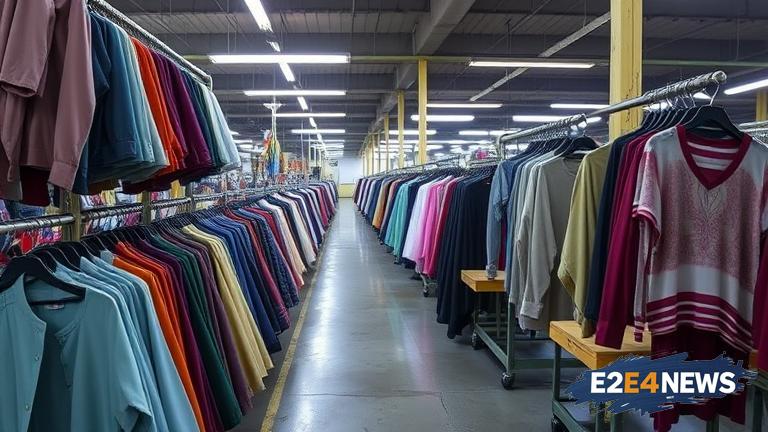The tiny African nation of Lesotho is facing a significant economic blow as a major clothing factory has shut down operations due to the looming US tariff deadline. The factory, which was one of the largest employers in the country, has left hundreds of workers without jobs. The closure is a result of the US threat to impose tariffs on African countries that do not comply with the African Growth and Opportunity Act (AGOA). Lesotho is one of the countries that has been warned that it may lose its eligibility for AGOA benefits if it does not meet certain requirements. The AGOA program provides duty-free access to the US market for certain African countries, and Lesotho has been a major beneficiary of this program. However, the US has been threatening to impose tariffs on African countries that do not comply with the program’s requirements, including rules related to labor rights and trade practices. The clothing factory in Lesotho was a major exporter of garments to the US, and the loss of AGOA benefits would have made it difficult for the factory to remain competitive. The factory’s closure is a significant blow to the economy of Lesotho, which is already one of the poorest countries in Africa. The country has a high unemployment rate, and the loss of jobs at the factory will only exacerbate this problem. The closure of the factory is also a concern for the US, as it may lead to a decline in trade between the two countries. The US is one of Lesotho’s largest trading partners, and the loss of AGOA benefits could have a significant impact on the US economy as well. The situation in Lesotho is a reminder of the complex and often fraught relationship between the US and Africa. While the US has provided significant economic support to Africa through programs like AGOA, it has also imposed strict requirements on African countries that can be difficult to meet. The US has been criticized for its approach to trade with Africa, with some arguing that it is too focused on protecting US interests rather than promoting economic development in Africa. Despite these challenges, there are still opportunities for trade and investment between the US and Africa. The US has a significant market for African goods, and many African countries are eager to increase their exports to the US. However, the US must be willing to work with African countries to address the challenges they face and provide support for economic development. The closure of the clothing factory in Lesotho is a reminder of the need for the US to take a more nuanced approach to trade with Africa. The US must balance its own economic interests with the need to promote economic development in Africa. This can be achieved through programs like AGOA, which provide duty-free access to the US market for certain African countries. However, the US must also be willing to provide support and assistance to African countries to help them meet the requirements of these programs. The situation in Lesotho is a complex one, and there are no easy solutions. However, by working together, the US and Africa can build a stronger and more equitable trade relationship. The US can provide support and assistance to African countries, while also promoting its own economic interests. This can be achieved through a combination of trade agreements, investment, and economic development programs. The key is to find a balance between the needs of the US and the needs of Africa, and to work together to build a more prosperous and equitable future for all. The closure of the clothing factory in Lesotho is a reminder of the challenges that must be addressed in order to achieve this goal. The US and Africa must work together to promote economic development, address trade barriers, and build a stronger and more equitable trade relationship. This will require a commitment to cooperation and a willingness to work together to address the complex challenges that face both the US and Africa. The situation in Lesotho is a call to action, and it is up to the US and Africa to respond. By working together, we can build a brighter future for all, and promote economic development and trade between our nations.
